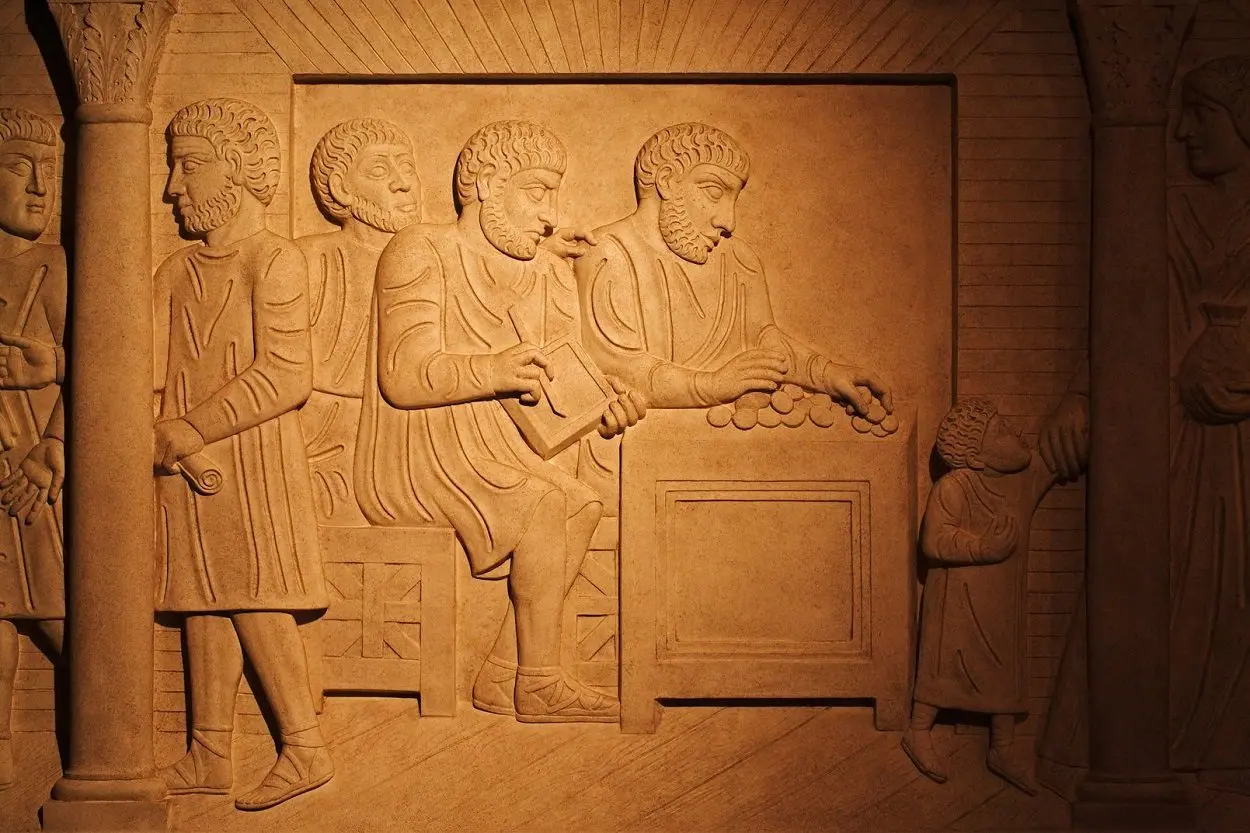A study using gold impurities in silver coins and lead pollution in Greenland ice suggests that the Romans were early pioneers of recycling.
The process of extracting silver from ores and the refining at mints results in high volumes of lead pollution. During antiquity, this pollution entered the atmosphere, and drifed across the Atlantic leaving a “pollution fingerprint” in the Greenland ice.
The study, published in the journal Archaeological and Anthropological Sciences, highlights a significant reduction in lead pollution levels in the ice during the late Roman Republic, despite the continued production of coins.
The likely cause was a period of conflict during the first and second centuries BC, when Rome’s access to silver mines in Iberia and southern France was interrupted.
Deliberate debasement of the denarii (the predominant silver coin of the Romans) with copper is often considered to show interruptions in silver production. Yet, despite slight dips in the fineness of silver coins (especially around the times of the Social and Civil Wars in the first century BC), this does not provide enough of an explanation for the drops in lead pollution.
In elucidating this occurrence, Dr. Jonathan Wood and Dr. Matthew Ponting, researchers from the University of Liverpool, attribute it to the Romans’ practice of recycling silver, frequently acquired through post-conflict looting in Iberia and southern France for coin production.
According to the researchers: “At around 120 BC clusters of coins began appearing with very low levels of gold in them. The silver used for these coins also appears to have become part of the silver supply for coinage in the first half of the first century BC. Then, in 49 BC, a new infusion of silver with high levels of gold in it appears to enter circulation. Given that Julius Caesar returned to Rome from his battles with the Gauls in 49 BC, the researchers propose that this new silver in circulation was plundered by Caesar’s army.”
Dr Jonathan Wood said: “Debasing silver was one way to deal with fluctuations in the silver supply. Melting down existing silver, either yours or someone else’s, was another. For the Romans, recycling coins would have been considerably less expensive than extracting new silver – a benefit for their finances, as well as for the environment.”
https://doi.org/10.1007/s12520-023-01854-w
Header Image Credit : Alamy





